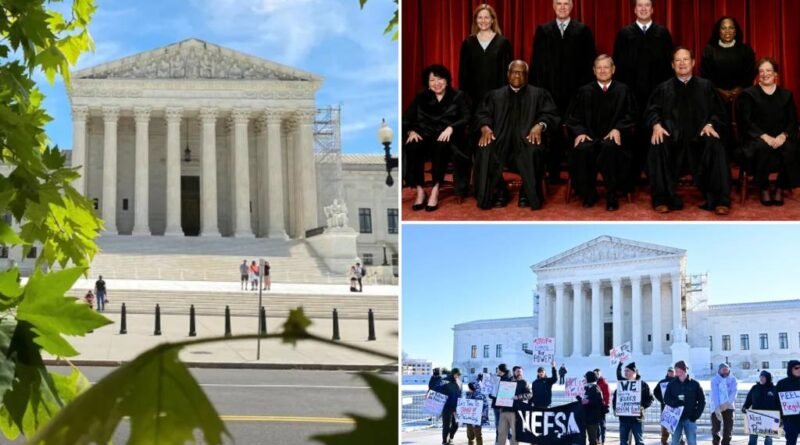The Supreme Court’s Chevron ruling compels Congress to fulfill its responsibilities

An unexpected turn of events unfolded when a seemingly minor case regarding fishing regulations led to the downfall of a significant aspect of modern administrative law. This aspect pertains to the regulations governing executive-branch agencies responsible for creating the rules that impact our daily lives.
In Loper Bright Enterprises v. Raimondo, the Supreme Court overturned the 1984 case Chevron U.S.A. v. Natural Resources Defense Council, which mandated judges to defer to “reasonable” agency interpretations of their operative statutes.
Initially designed to simplify the Reagan administration’s deregulatory efforts in the face of judicial hindrances, the Chevron doctrine ended up fostering bureaucratic expansion instead.
The court’s decision to acknowledge the failure of their 40-year-old experiment in rebalancing the relationship between administration and judicial review is commendable.
Furthermore, the court itself has refrained from using the doctrine for almost a decade.
In his majority opinion, Chief Justice John Roberts, supported by five colleagues, remarked, “At this point, all that remains of Chevron is a decaying husk with false pretensions.”
The specific ruling in this case is that Chevron deference violates the Administrative Procedure Act by granting agencies authority over legal interpretation that rightfully belongs to the courts.
As Roberts stated, “Chevron’s presumption is misguided because agencies do not possess any special competence in resolving statutory ambiguities. This is the role of the courts.”
Federal judges are employed and granted life tenure to make challenging decisions when laws are ambiguous or complex, free from political influences.
“The purpose of traditional tools of statutory construction, which courts use daily, is to resolve statutory ambiguities,” Chief Justice Roberts continued.
“This holds true even when the ambiguity concerns the extent of an agency’s power – possibly when abdication in favor of the agency is the least appropriate approach.”
In a previous piece for City Journal published before the Loper Bright case was argued, I highlighted how Chevron led to agency overreach, inconsistent outcomes, and weakened the role of Congress.
Although intended to strengthen Congress by restricting judicial involvement, Chevron actually enabled agencies to expand their powers as much as possible within the scope of their statutes, and sometimes even beyond.
Courts, in response, have become complacent in interpreting statutes, fostering a cycle of legislative evasion and judicial deference toward executive overreach.
In an amicus curiae brief, I argued that Chevron deference relies on the assumption that Congress will not over-delegate its powers, and agencies will act as loyal agents.
However, experiences have shown that Congress avoids accountability, while agencies pursue their own agendas.
This dynamic has given rise to executive governance reliant on unilateral actions, leading the Supreme Court to step in and nullify extreme executive and agency decisions in various domains, from vaccination mandates to environmental regulations.
Without Chevron, two prominent regulatory initiatives by the Biden administration – the new Title IX regulations and student loan forgiveness – face increased uncertainty. Both have been temporarily halted by the courts, and their chances of success on appeal have diminished.
The demise of Chevron heralds a significant shift in administrative law more broadly.
The ruling reinforces the judiciary’s role in interpreting statutes and preventing agencies from overstepping their boundaries. It also compels Congress to legislate for effective governance, promoting democratic accountability.
In essence, by enhancing the oversight of the executive branch by the judiciary, the legislative branch gains strength.
My only regret is that the petition for the Supreme Court case Loper Bright was filed before its companion case, Relentless, Inc. v. Department of Commerce, hence the consolidated opinion carrying the former’s name.
It would have been fitting for the much-criticized Chevron case, targeted by legal challenges for years, to be overturned by a case named Relentless (the name of a fishing vessel working alongside the Persistence).
Nonetheless, Chevron is no more. Long live judicial review!
Ilya Shapiro is the director of constitutional studies at the Manhattan Institute. Adapted from City Journal.



